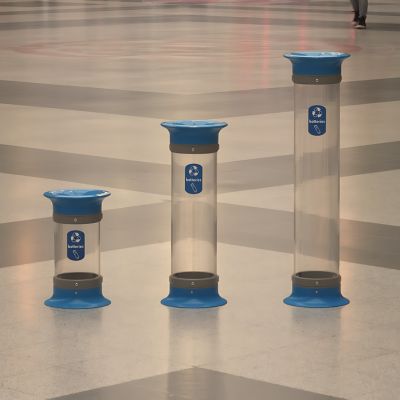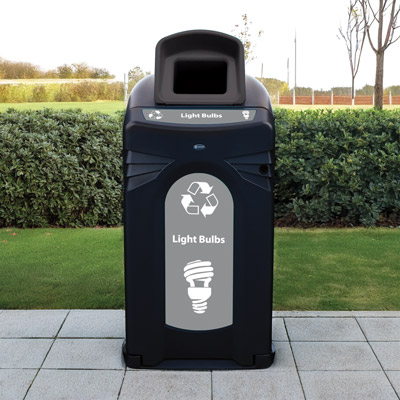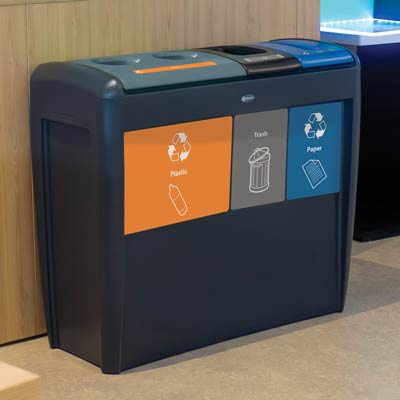In the modern office, sustainability is more than just a buzzword — it’s a necessity.
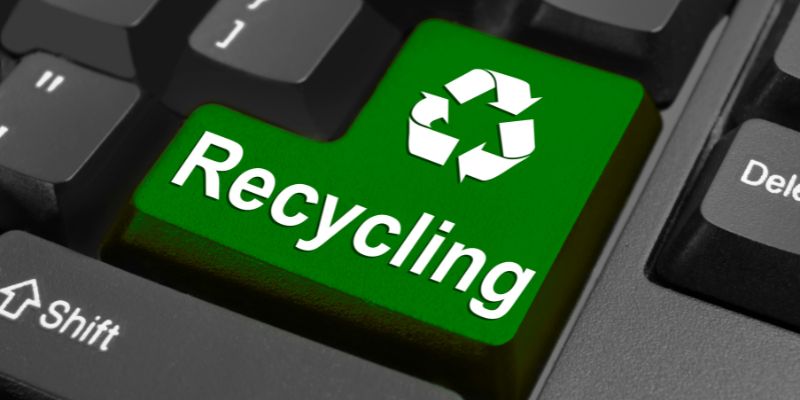
With the increasing awareness about our environmental footprint, recycling has become a crucial part of office operations. Recycling in the office contributes to a healthier planet and reflects positively on the company's image, attracting environmentally conscious clients and employees.
The Importance of Recycling in the Office
Recycling in the office has several benefits for both the environment and the company. Office spaces generate significant amounts of waste, including paper, plastic, glass, and electronic trash. By diverting these materials from landfills and reintroducing them into the production cycle, businesses can reduce their carbon footprint and contribute to a circular economy model. Moreover, embracing recycling initiatives fosters a culture of environmental responsibility among employees, promoting teamwork and engagement toward a common goal.
Getting Started: What Should You Recycle?
Before implementing recycling initiatives, businesses need to assess their current waste management practices.
Conducting a waste audit helps identify the types and quantities of waste generated as well as areas for improvement. However, here’s a list of common office items that can—and should—be recycled.
Paper and Cardboard
Paper and cardboard comprise a significant portion of office waste. This includes everything from printed documents and envelopes to packaging materials and coffee cups. Here are some key facts to note about recycling paper in the office;
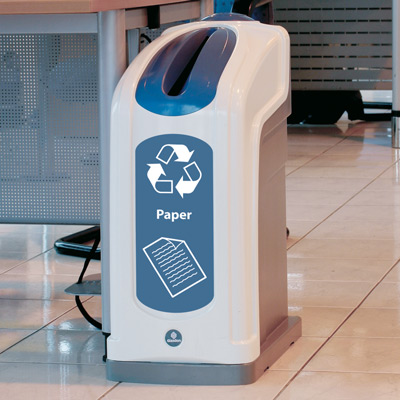
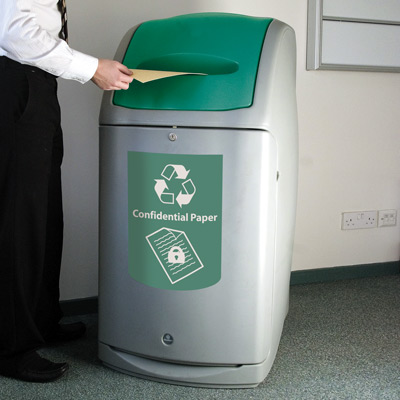
Explore our range of Paper Recycling Bins
Electronics & Techno Trash
Electronics, or e-waste, is a rapidly growing waste stream. This includes old computers, printers, fax machines, and even smaller items like keyboards and mice. Many components of these items can be recycled or reused. Likewise, ink and toner cartridges from printers are often overlooked, but they can and should be recycled as many manufacturers offer take-back programs for their products. Always ensure to wipe any personal data from electronics before recycling.
Batteries
Batteries, particularly single-use batteries contain materials that can harm the environment but are also recyclable. Battery recycling is fast growing and many facilities can recover valuable metals and prevent harmful substances from entering the environment.
Fluorescent Light Bulbs & CFLs
Recycling light bulbs is an important but often overlooked aspect of waste management. Various types of light bulbs, including compact fluorescent lamps (CFLs), LEDs, and even traditional incandescent bulbs, can be recycled.
Ink, Toner Cartridges & Cellphones
Batteries, particularly single-use batteries contain materials that can harm the environment but are also recyclable. Battery recycling is fast growing and many facilities can recover valuable metals and prevent harmful substances from entering the environment.
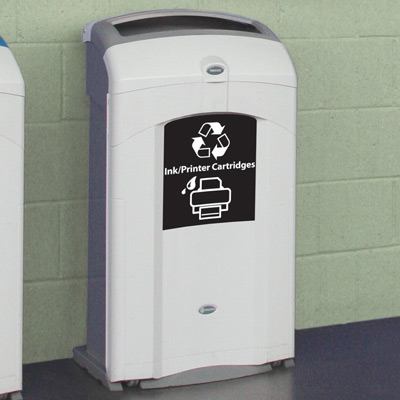
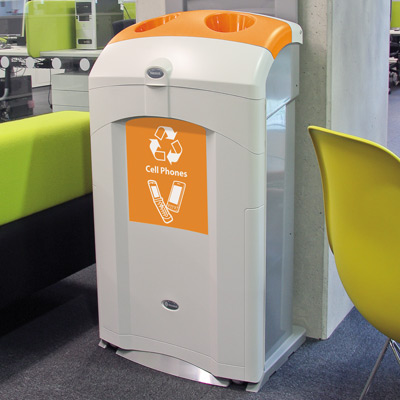
Explore our range of Techno Trash Recycling Bins
Food and Drink Containers
Recycling food and drink waste in office settings is increasingly becoming a priority for businesses aiming to reduce their environmental impact. By implementing dedicated recycling programs, offices can significantly decrease the amount of organic waste sent to landfills.
Many offices have kitchen facilities, which can generate a significant amount of waste from food and drink containers. Glass, plastic, and aluminum containers can typically be recycled in your regular recycling collection. Most of these containers are recyclable, but:
Coffee Cups & Pods
Traditional coffee cups, often lined with plastic, can be challenging to recycle, but many workplaces are adopting reusable or recyclable alternatives to mitigate this issue. Additionally, coffee pods, typically made from a combination of plastic and aluminum, can be effectively recycled through specific programs designed to handle their unique materials.
It's important to ensure that all liquids are poured out before recycling, as residual liquids can contaminate the recycling stream and reduce its efficiency. By encouraging the use of recyclable cups, participating in pod recycling initiatives, and properly preparing items for recycling, offices can significantly lower their environmental footprint.
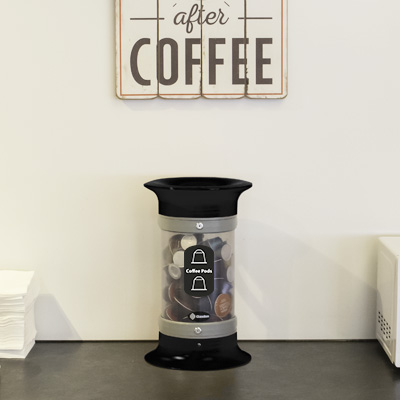
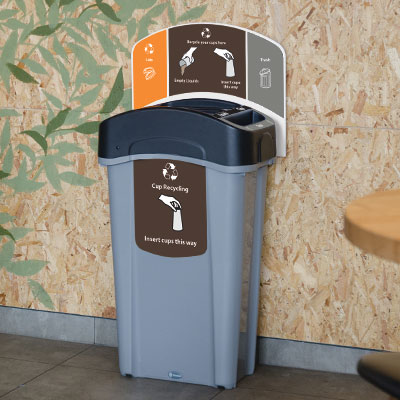
Explore our range of Coffee Cups & Pods Recycling Bins
Implementing effective recycling practices in the office is essential for reducing waste and promoting sustainability. By understanding what materials can be recycled and properly preparing them for recycling, businesses can make a significant impact on the environment and foster a culture of environmental responsibility among employees.
To further enhance your office recycling efforts, read our guide on 7 Tips to Optimize Your Office Recycling to help you maximize your recycling efficiency and contribute to a greener workplace.

